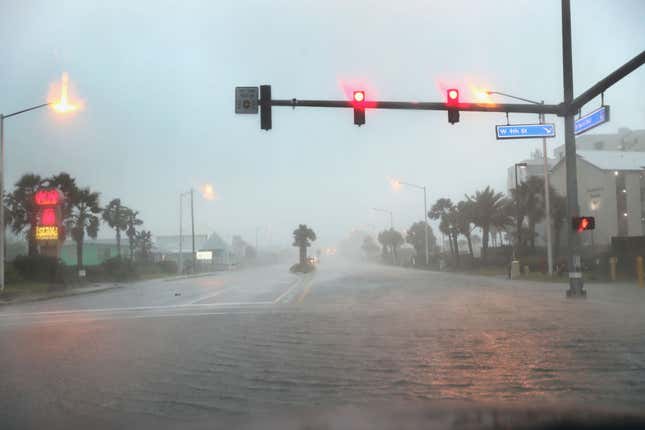
The ramifications of climate change are being felt worldwide – from the United States to Africa. 2021 was reported to be the 6th warmest year on record, and storms like Hurricane Katrina, Sandy, Harvey, and Ida show us what is in our future if we don’t reverse course. Weather disasters have cost the United States $750 billion over the last five years alone.
However, according to CNN, people of color will shoulder much of the cost of flood damage as it’s due to grow from $32 billion today to $43 billion in 2050 – as noted by Nature Climate Change. Researchers also found primarily Black communities along the Atlantic and Gulf Coasts will feel the impact over the next thirty years.
“Not everyone is bearing the same burden here,” Oliver Wing, lead author of the study and chief research officer at Fathom, a flood modeling group, told CNN. “As flooding patterns shift and the climate changes, we’re basically telling African American communities to shoulder greater burdens again — so there’s a fundamental social justice issue there.”
The First Street Foundation found in a study last year that 25% of all critical infrastructure is at risk for flooding. NPR notes “40% increase in flood risk in places where at least one-fifth of the population is Black.”
Beth Tellman, a co-founder of analytics firm Cloud to Street, spoke about the study and that policymakers can use it to see what areas need help the most:
“It’s the specificity at which they had the confidence in pointing out who is going to be affected, as well as the difference in the causes of development and population growth, because of the improvements they’ve made to their models, that’s important,” Tellman told CNN. “That level of specificity helps us understand what to do in terms of investments and policies.”
If floods, excessive heat, and colder temperatures dipping into southern states increase, it will interrupt energy, water supply, and food. A USC study states low-income households use more than twice the proportion of their total income on food, energy, and household needs as high-income households. That will only increase if we do nothing to curb climate disasters.
This makes the climate provisions of the, now-in-limbo, Build Back Better act that much more urgent to pass. The Biden administration is proposing a $14 billion increase to tackle climate change. Hopefully, Congress acts urgently, investing in clean energy and barriers for coastal cities.

